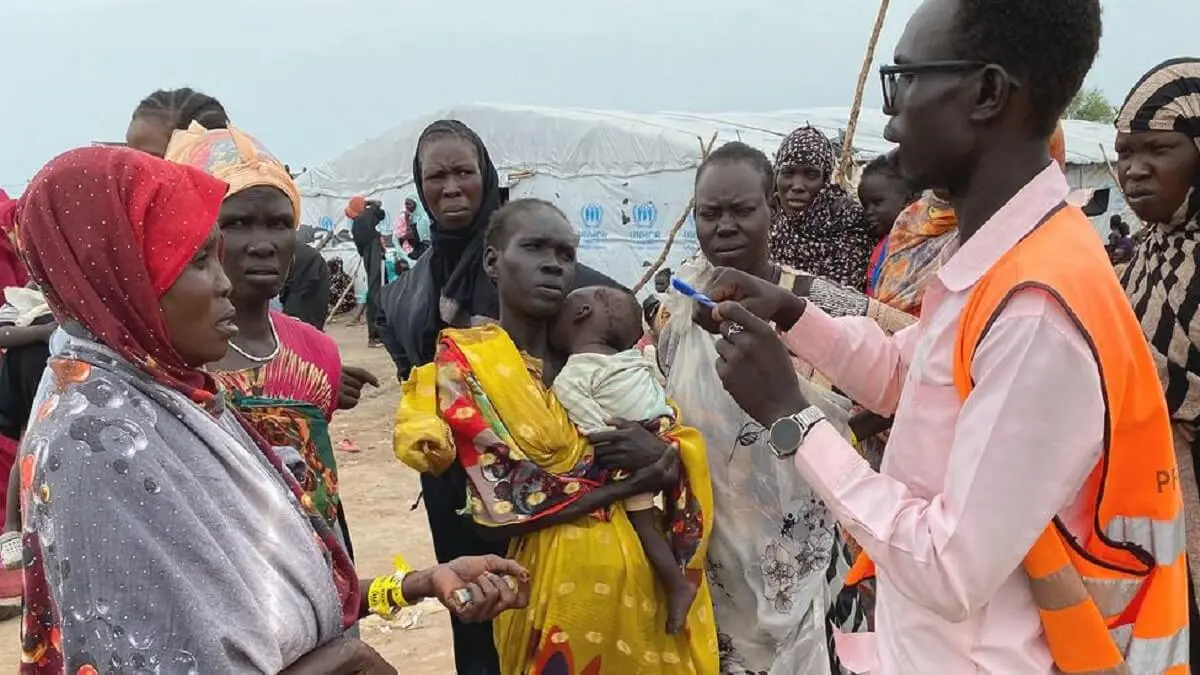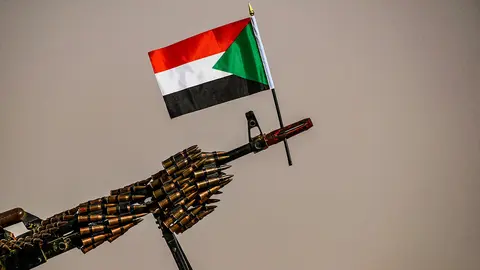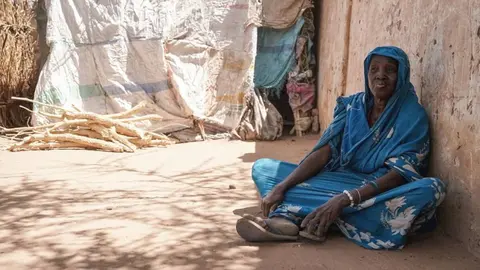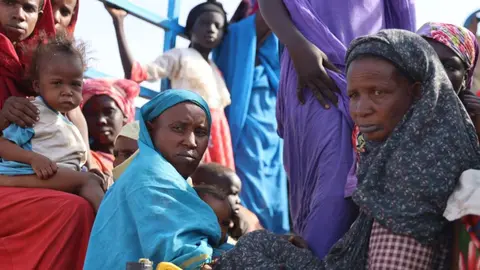UN appeals to Security Council for famine relief in Sudan

Senior UN officials have asked the Security Council for help in getting humanitarian aid into Sudan "across borders, across battle lines, by air, by land" to combat the famine that has gripped at least one place in North Darfur.
Last month, the US suggested that the 15-member body consider allowing aid access through border crossings such as Adre from Chad. But Sudan's military-aligned government and Russia, which has veto power on the council, said on Tuesday there was no need for the Security Council to take action.
"If there is a famine ... we are ready to cooperate with you and we will open the crossings for any humanitarian aid. It is not the government, which I am proud to present here, that is blocking humanitarian aid," Sudan's ambassador to the UN, Al-Harith Idriss Al-Harith Mohamed, told the council.
Last week, a body that monitors world hunger, the Integrated Food Security Phase Classification (IPC), said that more than 15 months of war in Sudan and restrictions on aid deliveries have caused famine in the Zamzam camp in North Darfur for internally displaced people.
The Sudanese government rejected the statements, while Russia questioned them.
The war in Sudan erupted in mid-April last year over a power struggle between the army and the paramilitary Rapid Reaction Forces (RSF) ahead of a planned transition to civilian rule.
Zamzam is in an area that is the last major stronghold of the RSF in all of Darfur. The RSF has been besieging the area and aid has not reached the sprawling camp for months.
"When there is famine, it means that we are too late, that we didn't do enough, that we, the international community, have failed," Edem Wosornu, a senior UN humanitarian aid official, told the Security Council on Tuesday.
Cross-border access
In February, the government banned the delivery of aid through the Adre border crossing, one of the shortest routes to the famine-stricken region. Government officials have claimed that the crossing is used by RSF to transport weapons.
Wosornu stressed that Adre "would be the most efficient route and would allow assistance to be delivered with the speed and scale required at this crucial and critical time". He also noted that a 2.7 billion dollar UN aid request for Sudan had only been 32 percent funded.
Stephen Omollo, a senior official with the UN World Food Programme, said that until there was a ceasefire, the council's help was "urgently needed to ensure that we can carry out our work effectively and without interference", adding that access was needed through Adre and other cross-border supply routes.
US Ambassador to the UN Linda Thomas-Greenfield suggested that the Security Council consider adopting a resolution to approve sending cross-border aid to Sudan, following the example of steps taken in Syria.
Diplomats said no such action was imminent. Russia's deputy ambassador to the UN, Dmitry Polyanskiy, told the Council that the international community "should not interfere in Sudan's internal affairs under the pretext of the grave humanitarian situation and indicate to the legitimate authorities which humanitarian corridors should be opened".
Between 2014 and 2023, the Council authorised the delivery of aid from neighbouring countries to millions of people, mainly in opposition-held areas of Syria. Authorisation was needed because the Syrian authorities did not agree to the operation.











